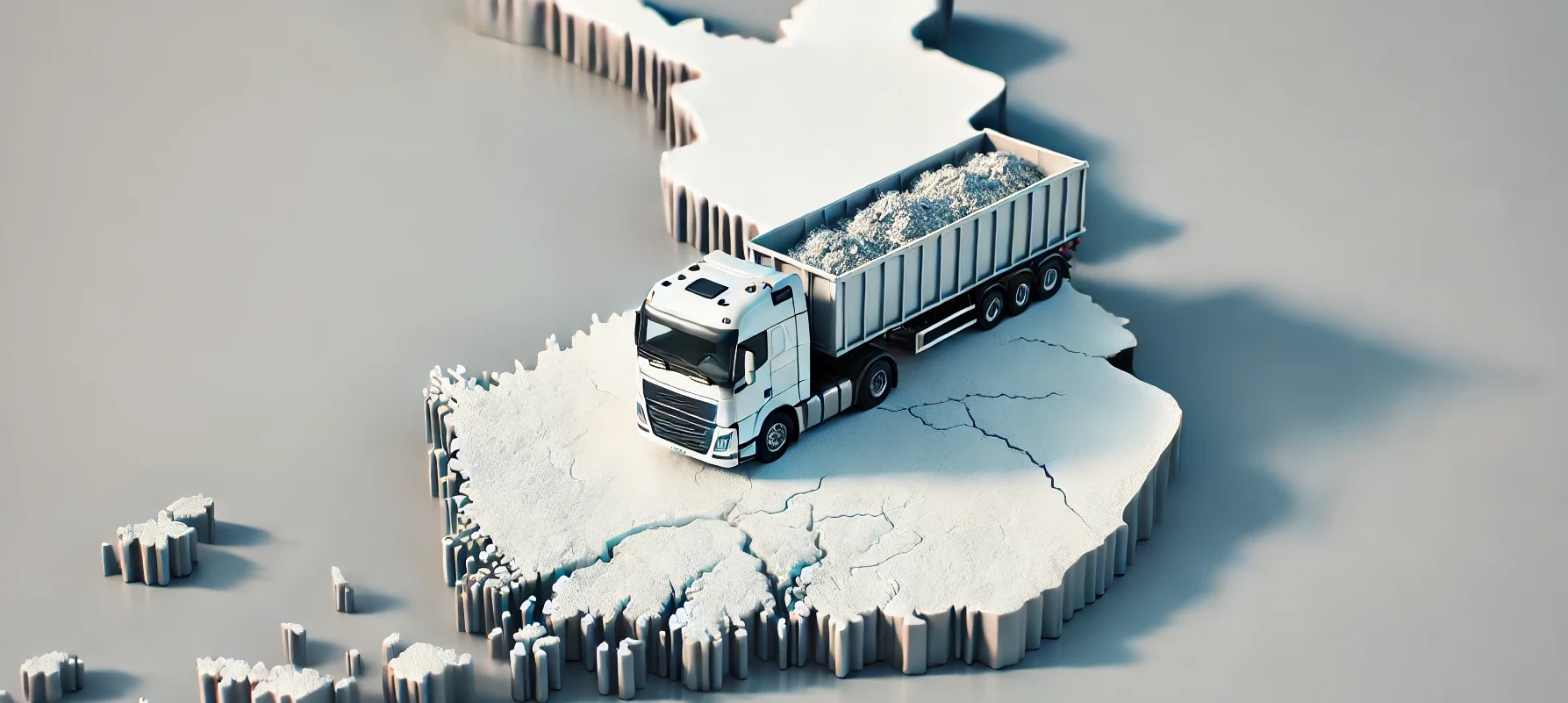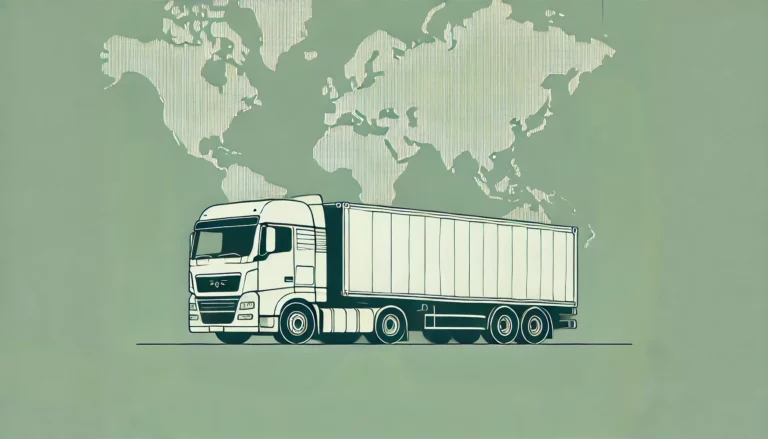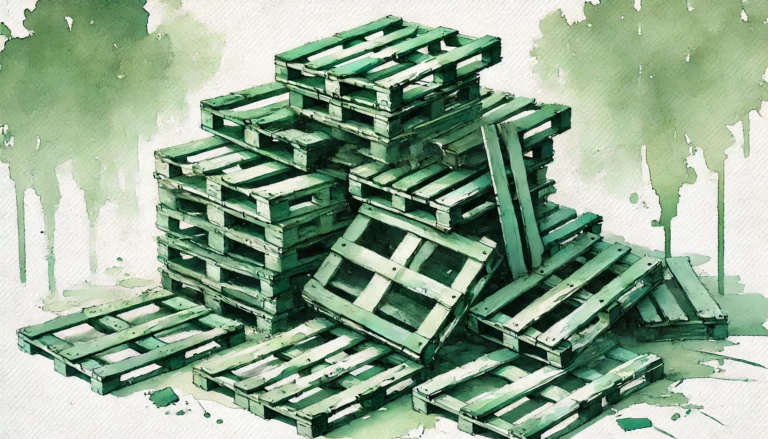Waste transport permit in Finland now more valuable than before

Although Finland is getting better at recycling, it is far from Germany or the Netherlands. However, the country is investing in waste-to-energy facilities, resulting in only 1% of waste going to landfill. The demand for incineration plant materials is so high that a large part of it has to be imported from abroad. However, they can only be transported by companies with a waste transport permit in Finland. How can they be obtained?
Waste transport in Finland - key regulations
In the European Union, the key document regulating waste shipments is Regulation (EC) No 1013/2006 of the European Parliament and of the Council on shipments of waste. It aims to prevent illegal waste shipments and minimise their impact on the environment. In Finland, the implementation of EU regulations is done through national laws and regulations, which precisely define the procedures and requirements for waste transport, including registration and monitoring systems.
The most important document there is the amended Waste Act, Jätelaki 646/2011. The waste transport permit is mentioned in § 94, which states:
A person who intends to carry out professional waste transport or act as a waste management intermediary must submit an application for approval of the activity to the waste management register referred to in Section 142(1)(2).
The licence requirement applies to both import, export and transit.
Contact for a Finnish waste permit:
e.nadolna@ekologistyka24.pl , +48 881 045 376
j.blazewicz@ekologistyka24.pl , +48 500 867 153
Waste transport permit in Finland key to successful imports
The statistics clearly show that Finland has shifted from exporting to importing waste. This is particularly evident in 2023, when the weight of imported waste quadrupled compared to previous years. According to the Helsinki Times website, a year ago their weight was approximately 310,000 tonnes. More than half - 180 000 tonnes - was biomass, imported to feed installations producing thermal energy. The author of the cited article notes that the weight of waste exported from the country was twice as low at the time.

The change in trend in the Finnish waste market has been noticed before. Ismo Hiltunen, manager at Gemifin, in a statement to the Bioenergy International portal in 2022, saw the reasons for this in, among other things changing awareness and focusing more attention on waste sorting. In his view, it was also not insignificant that the capacity of waste incineration plants has increased over the past few years. By 2022, it stood at 2.2 million tonnes, an increase of 10%.
More imports are an excellent opportunity for transport companies to make good money. Provided they have permission to transport waste in Finland.
Why obtain a waste transport permit in Finland?
Economic and image benefits
The first reason why a waste permit for Finland will be a good idea is, of course, money. Waste transport, because of the accompanying risks, is better paid than normal freight. And if the demand for waste in this country is really high, prices can be even better.
The waste transport permit is also a tool that helps companies safeguard themselves against problems of illegal deliveries and breaches of environmental regulations. The document provides a guarantee that the business is compliant with current regulations and standards. This can increase a company's credibility in the eyes of business partners and customers.
Legal security
Its absence can result in serious consequences. In 2022, two cases of illegal transport were reported in the media. The first involved 66 tonnes of sewer manhole waste illegally exported to Sweden. The company failed to notify the international shipment of waste, for which it could face serious consequences. Which ones? Time will tell. Last year, following an investigation, the case was referred to the public prosecutor's office.
The second case revealed The investigation, which is being conducted in 2019-2020 by the Estonian and Finnish authorities. Forty shipments of oil waste totalling more than 100 tonnes were analysed. It then came to light that in none of the cases were the transports accompanied by the required documentation, including the carriers' permits to transport the waste. At a later stage, 70 illegal shipments of mechanical treatment waste were also uncovered. Their total weight amounted to nearly 1,700 tonnes. According to the investigators' findings, both the consignor of the waste in Estonia and the consignee in Finland were aware of the illegal nature of the shipments.
Jurgen Huba, the prosecutor investigating the case on the Estonian side at the time, pointed out that the company could have saved almost €100,000 in this way. However, the consequences it will face will be much more costly due to the environmental danger resulting from its improper handling of waste.
Environmental impact of international waste transport
Finland aims to minimise the negative effects of waste transport. This is part of its environmental policy, particularly in the National Waste Management Plan to 2027. The plan includes measures to reduce waste, increase recycling and promote the circular economy. The transport of waste is strictly regulated at both national and EU level. In accordance with the provisions of the Waste Act and EU regulations on the cross-border transport of waste.
The aim of these measures is to reduce emissions and environmental risks from the transportation of waste. Control measures have also been introduced, such as waste transport permitsand Finnish customs and environmental services actively monitor the process, intervening in cases of illegal transport. In addition, Finland is emphasising the development of infrastructure for domestic waste treatment, which reduces the need to export waste.
The importance of the circular economy in Finland
Finland is one of the leaders in the drive to implement closed loop economy (circular economy). It involves maximising the use of raw materials and minimising waste. In the context of international waste transport, the circular economy plays a key role. It supports the reduction of waste transported between countries and promotes local treatment and recycling solutions, which has a positive impact on both the economy and the environment.
Finland is actively investing in the development of recycling technology and infrastructure, as well as in promoting sustainable production and consumption. This reduces the need to export waste and the country is becoming self-sufficient in waste treatment. This approach not only reduces the negative effects of waste transport, but also creates new jobs and supports the development of innovative technologies.
***
In summary, obtaining a permit to transport waste to Finland is not only a legal requirement, but also key to building credibility and protecting against serious legal and financial consequences. Such a document protects hauliers from the risk of illegal activities, which can result in severe fines and negative reputational impact. In addition, compliance promotes environmental protection, and Finland, a leader in the circular economy, is committed to responsible and sustainable waste transport. Obtaining a permit not only opens up new opportunities for cooperation, but also contributes to environmental protection and the development of a sustainable economy.






